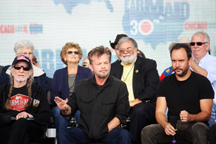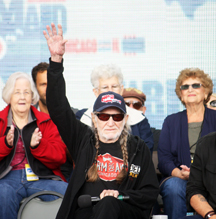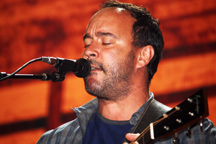Now in its 30th year, the grassroots festival to benefit farmers has grown to become a significant advocacy resource that savvy c-stores might benefit from.
David Bennett, Senior Editor
Thousands gathered Sept. 19 to witness the sights and sounds of Farm Aid 30, held at FirstMerit Bank Pavilion at Northerly Island in Chicago. While concert goers heard national music acts and enjoyed local food, the message sent was that after dire economic circumstances forced many American farmers to shut down in the mid-1980s, the annual music event has also heightened awareness of the economic stress that continues to plague U.S. farmers.
ORGANIC OPPORTUNITIES
With such awareness, also comes opportunity.
The United Fresh Produce Association and the National Association of Convenience Stores earlier this year collaborated on an initiative designed to build the business case for produce sales at convenience stores.
 Experts say that thousands of convenience retailers are located in what are called food deserts, where residents—many in inner-urban or rural areas—have no access to conventional supermarkets, and thus are prime-selling sites for fresh, local produce.
Experts say that thousands of convenience retailers are located in what are called food deserts, where residents—many in inner-urban or rural areas—have no access to conventional supermarkets, and thus are prime-selling sites for fresh, local produce.
That’s encouraging news for those convenience retailers that are getting more into local produce and tapping deeper into the communities they serve. Major chains such as Kwik Trip and Wawa have made major commitments to carrying fresh produce in their stores. Other c-stores have generated more sales and partnerships by teaming with local farmers markets.
Farm Aid advocates say that education and teamwork are required on both the commercial and the consumer sides to convey the message that keeping local farms productive is good for everyone.
Addressing the press on the main stage prior to the concert, Dave Matthews, who sat on the Farm Aid board with members Willie Nelson, John Mellencamp and Neil Young, said that message starts with the younger generation in order to ensure that consumers’ demand for local, healthy food remains robust.
“We have a growing awareness, a more public awareness where our food comes from and how our food is produced,” Matthews said. “And maybe more of us know now than did than 20 years ago and there may be more local restaurants that offer local foods. But we need to teach our children that what they eat matters, not only to their bodies, but to the land and to the community.”
ALL 50 STATES
Singer-songwriter Jack Johnson said locally-grown produce can be a healthy link between businesses, farmers and local communities.
To spread that message Johnson and his wife Kim—a teacher—in 2003 started the Kōkua Hawaii Foundation, a 501(c)3 non-profit organization founded in 2003 that supports environmental education in the schools and communities of Hawaii. One of the foundation’s programs, AINA In Schools’, a farm-to-school initiative that provides children nutrition education and garden-based learning, in addition to promoting healthy food on campus through snack programs featuring fresh, locally grown produce.
“It’s a challenge to get locally-grown food into the schools,” Johnson said.
This year’s Farm Aid line-up included the Blackwood Quartet, Matthews, who played with Tim Reynolds, Holly Williams, Imagine Dragons, Insects vs Robots, Jack Johnson, Mellencamp, Kacey Musgraves, Lukas Nelson & Promise of the Real, Mavis Staples, Young, Old Crow Medicine Show and Nelson.
Thanks to 30 years of action by farmers, activists and more health –conscious consumers, self-sustaining farming has experienced positive change and is poised for more, said Carolyn Mugar, Farm Aid’s executive director.
“The message of the show today is that everyone can do something,” Mugar said. “There’s always one more step that can be taken.”







